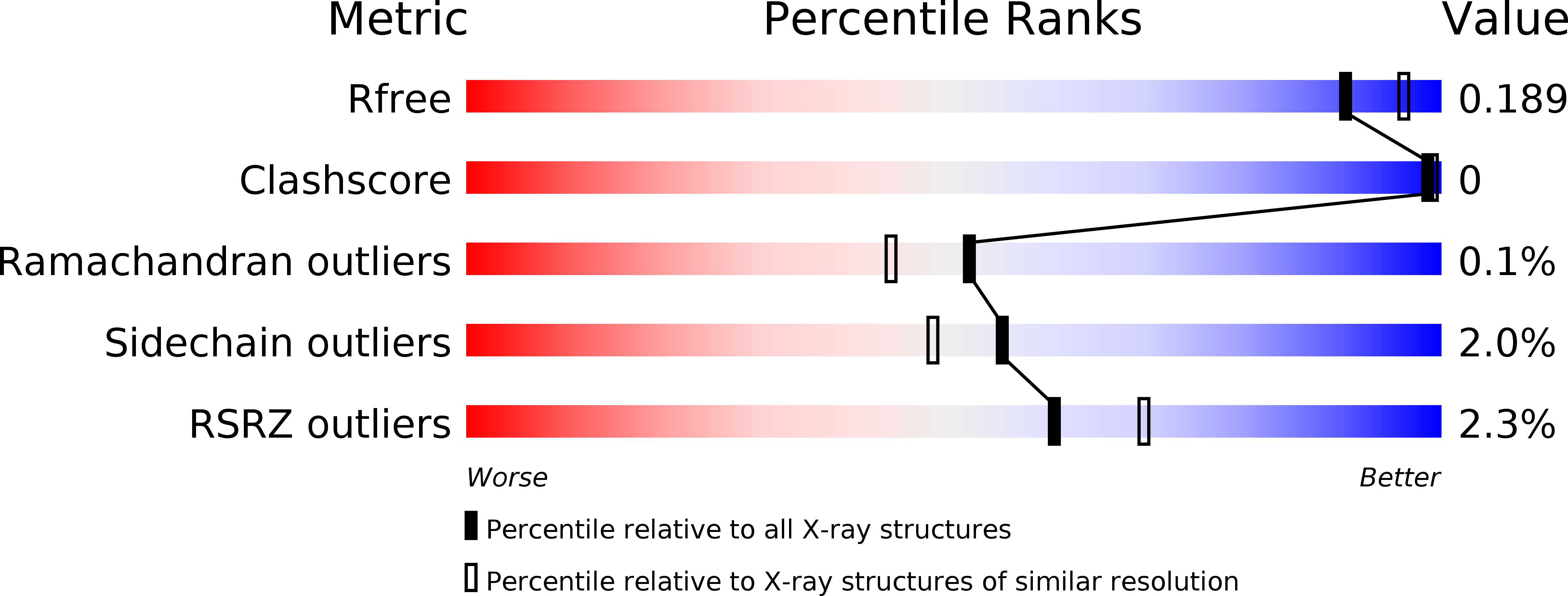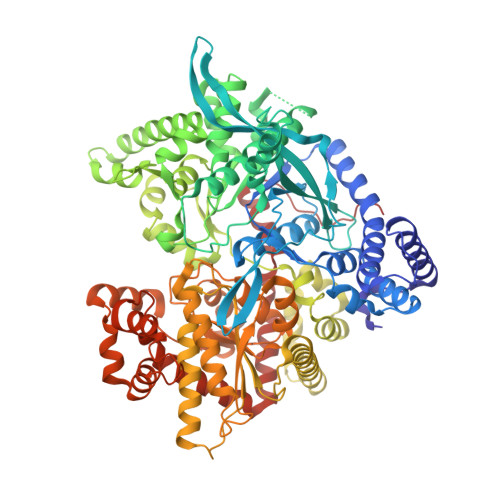Affinity Crystallography Reveals the Bioactive Compounds of Industrial Juicing Byproducts of Punica granatum for Glycogen Phosphorylase.
Stravodimos, G.A., Kantsadi, A.L., Apostolou, A., Kyriakis, E., Kafaski-Kanelli, V.N., Solovou, T., Gatzona, P., Liggri, P.G.V., Theofanous, S., Gorgogietas, V.A., Kissa, A., Psachoula, C., Lemonakis, A., Chatzileontiadou, D.S.M., Psarra, A.G., Skamnaki, V.T., Haroutounian, S.A., Leonidas, D.D.(2018) Curr Drug Discov Technol 15: 41-53
- PubMed: 28625148
- DOI: https://doi.org/10.2174/1570163814666170619091736
- Primary Citation of Related Structures:
5MCB - PubMed Abstract:
Glycogen phosphorylase (GP) is a pharmaceutical target for the discovery of new antihyperglycaemic agents. Punica granatum is a well-known plant for its potent antioxidant and antimicrobial activities but so far has not been examined for antihyperglycaemic activity. The aim was to examine the inhibitory potency of eighteen polyphenolic extracts obtained from Punica granatum fruits and industrial juicing byproducts against GP and discover their most bioactive ingredients. Kinetic experiments were conducted to measure the IC50 values of the extracts while affinity crystallography was used to identify the most bioactive ingredient. The inhibitory effect of one of the polyphenolic extracts was also verified ex vivo, in HepG2 cells. All extracts exhibited significant in vitro inhibitory potency (IC50 values in the range of low ¦̀g/mL). Affinity crystallography revealed that the most bioactive ingredients of the extracts were chlorogenic and ellagic acids, found bound in the active and the inhibitor site of GP, respectively.While ellagic acid is an established GP inhibitor, the inhibition of chlorogenic acid is reported for the first time. Kinetic analysis indicated that chlorogenic acid is an inhibitor with Ki=2.5 x 10-3Mthat acts synergistically with ellagic acid. Our study provides the first evidence for a potential antidiabetic usage of Punica granatum extracts as antidiabetic food supplements. Although, more in vivo studies have to be performed before these extracts reach the stage of antidiabetic food supplements, our study provides a first positive step towards this process.
Organizational Affiliation:
Department of Biochemistry and Biotechnology, University of Thessaly, 26 Biopolis 41500 Larissa, Greece.
















